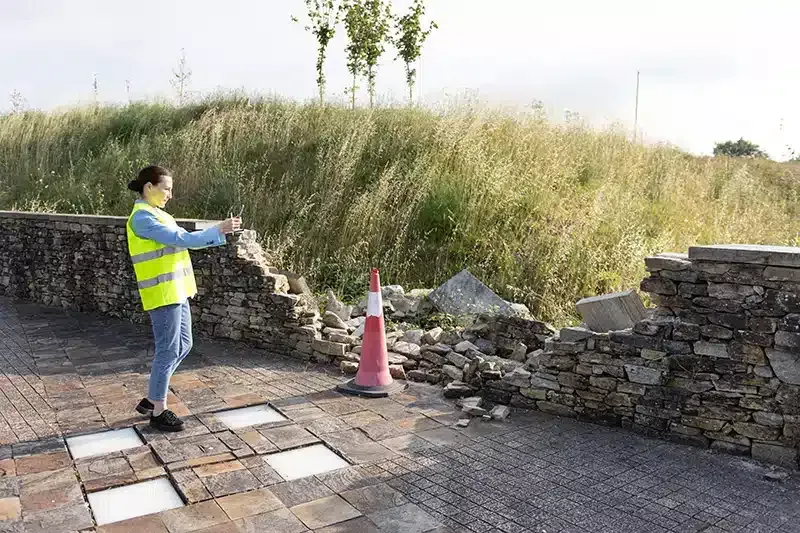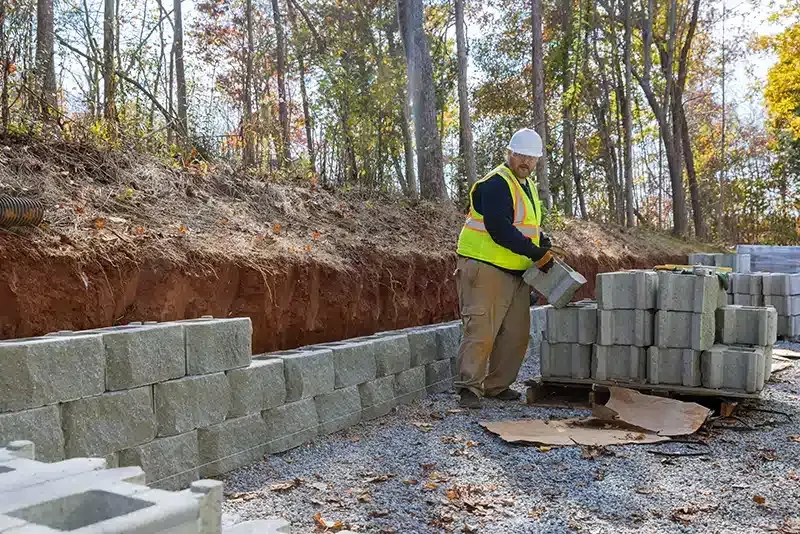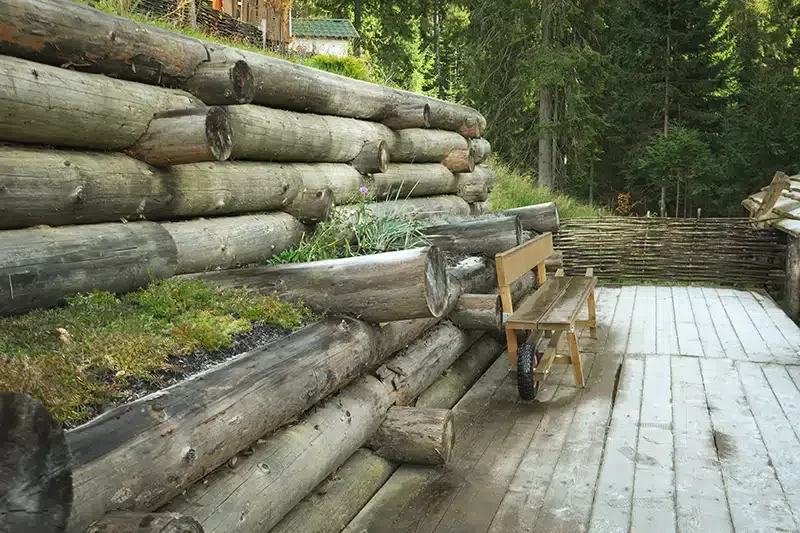How Can Hiring Concrete Retaining Wall Contractors Prevent Future Problems?
When you consider hiring concrete retaining wall contractors, you're not just investing in a structure; you're potentially safeguarding your property against future issues.
Their expertise ensures that common mistakes—like improper drainage or inadequate soil assessment—are avoided, which can save you from costly repairs down the line.
Plus, their familiarity with local regulations helps keep your project compliant, protecting you from legal headaches.
But what other unseen advantages might you gain by choosing professionals over a DIY approach?
The implications extend far beyond simple construction.
Importance of Professional Expertise
Building a concrete retaining wall requires more than just basic construction knowledge; it demands expertise in various crucial areas. Hiring experienced contractors ensures that your retaining wall is built with the proper attention to detail and the right techniques.
Their knowledge of soil types, drainage solutions, and structural integrity is vital to ensuring the stability and durability of your wall.
Avoiding Common Pitfalls
Professional contractors have extensive experience that allows them to foresee and address challenges before they become issues.
- Anticipating Problems: With their expertise, they can adapt to site-specific conditions.
- Tailored Materials and Techniques: They select the most appropriate materials and construction methods for your particular needs.
Adhering to Building Codes and Regulations
Experienced contractors ensure your project complies with all local building codes and regulations.
- Legal Protection: This adherence reduces the risk of fines or project delays.
- Long-Term Durability: By meeting these standards, your retaining wall is built for lasting strength.
Long-Term Benefits
Investing in professional expertise secures not only a successful project but also the long-term integrity of your property.
- Peace of Mind: With experts handling the construction, you can rest assured that your wall will function as intended for years.
- Quality Results: Professionals ensure your retaining wall is built to last, providing lasting value to your landscape.
Hiring experienced contractors for your concrete retaining wall project ensures high-quality construction, compliance with local regulations, and long-term stability, making it a smart investment in the future of your property.
Avoiding Common Construction Mistakes
Ensuring the longevity and stability of your concrete retaining wall involves avoiding common construction mistakes. These errors can undermine the wall’s effectiveness and lead to costly repairs down the line.
By focusing on key aspects of the project, such as site preparation, adherence to building codes, and proper material selection, you can create a structure that stands the test of time.
Proper Site Preparation
Before construction begins, ensure the site is level and free of debris.
- Soil Assessment: An experienced contractor will assess the soil type and drainage conditions to ensure a stable foundation.
- Clearing the Area: Proper clearing of the site prevents uneven settling, which could lead to structural issues.
Adhering to Local Building Codes
Local regulations are in place to ensure safety and stability.
- Compliance with Codes: Avoid penalties and safety risks by ensuring your contractor follows all relevant local building codes.
- Legal Protection: Proper adherence protects your project from delays or legal complications.
Choosing the Right Design and Materials
Selecting the correct design and materials is vital to avoid stress on the wall.
- Wall Design: Overbuilding or incorrect design can create undue pressure, resulting in cracks or collapses.
- Material Selection: Work with your contractor to select materials that are suitable for your specific needs and site conditions.
Waterproofing and Drainage Systems
Effective waterproofing is essential to ensure the wall’s longevity.
- Implement Drainage: Failure to incorporate proper drainage can result in water buildup behind the wall, weakening its structure.
- Waterproofing Solutions: Ensure drainage systems are properly installed to prevent water-related damage.
By addressing these potential issues early in the process, you can ensure the strength and durability of your concrete retaining wall, ultimately saving time, money, and future repairs.
Long-Term Cost Savings and Benefits
Investing in a concrete retaining wall offers numerous advantages, including substantial long-term cost savings. A well-built concrete wall not only ensures stability and longevity but also protects your property from potential damage.
By addressing issues like soil erosion and water drainage, it reduces the risk of costly repairs that could arise from neglecting these concerns.
Minimal Maintenance and Durability
Concrete walls require significantly less maintenance than timber or masonry alternatives.
- Reduced Repair Costs: With concrete, you won’t have to worry about issues like rotting, warping, or pest damage.
- Longevity: The durable nature of concrete ensures your wall remains in excellent condition for years without needing frequent repairs.
Enhanced Property Value
A well-constructed concrete retaining wall adds both functional and aesthetic value to your property.
- Improved Aesthetics: It boosts your landscape’s visual appeal, making it more attractive to potential buyers.
- Increased Market Value: The functional and aesthetic benefits can raise the overall value of your home, potentially providing a profitable return on investment if you decide to sell.
By choosing a concrete retaining wall, you're not only securing the integrity of your landscape but also investing in a structure that saves you money over time while increasing your property’s value.
Hiring professional concrete retaining wall contractors provides long-term benefits that extend far beyond the initial construction.
Their expertise helps prevent common mistakes, ensures compliance with building codes, and enhances the durability of your wall, saving you from future costly repairs.
With reduced maintenance needs, enhanced property value, and peace of mind, investing in professional contractors is a smart choice that offers lasting security and increased value for your property.


